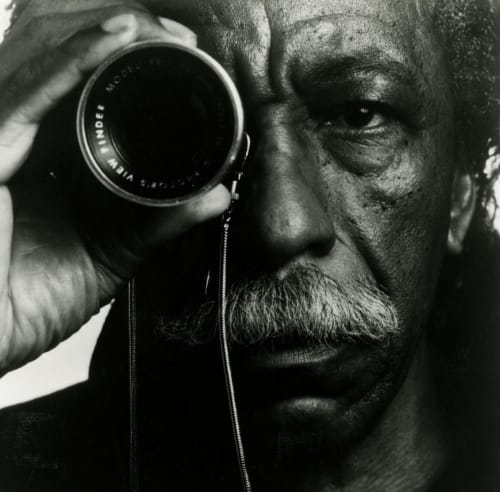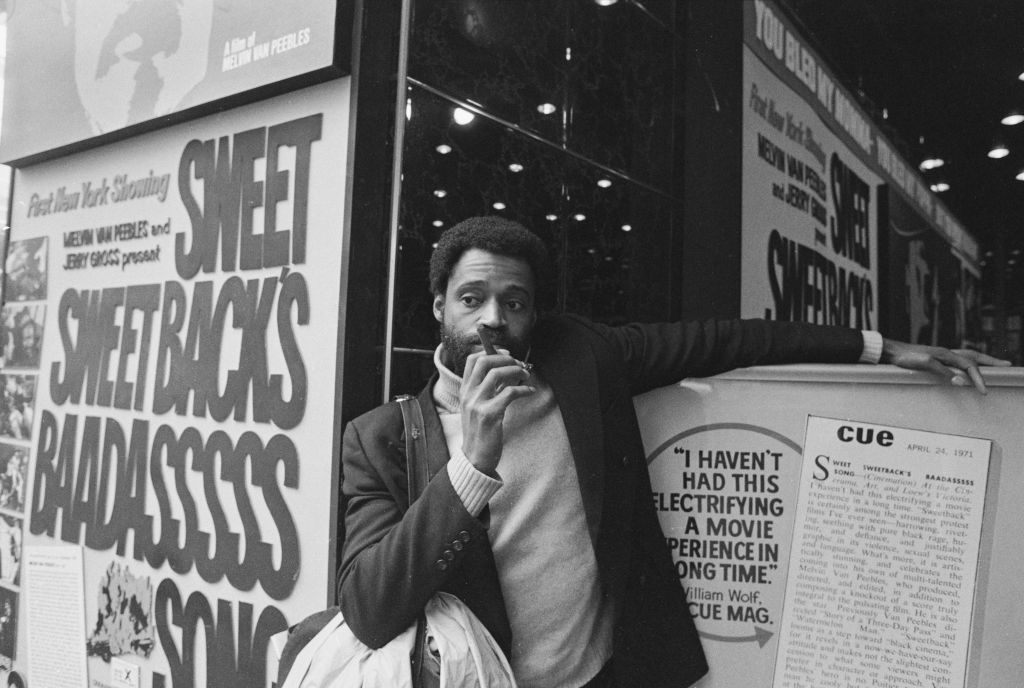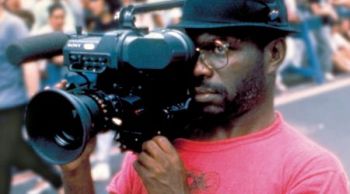February is Black History Month. Let us celebrate all the amazing people who have had such a great impact on the film industry. Recently within the last several years, there have been eye-opening movements to eliminate unjust treatment of Black, Asian, and Muslim Americans. These unjust practices have impacted every aspect of life, including the film industry. The film industry has been scrutinized for its lack of inclusivity and inaccurate representation of Black filmmakers. The Oscars have been criticized for not nominating actors of color for two years in any category. The hashtag #OscarsSoWhite flooded the internet forcing the Academy to recognize the inequality.
More recently, a study in 2019 by the USC Annenberg Inclusion Initiative, “Inclusion in the Director’s Chair: Gender, Race, and Age of Directors Across 1,200 Top Film” states that out of 1,335 directors only 6% were Black or African American. Out of these 80 Black filmmakers five were female. In 2018, there were no African Americans nominated at the Oscars. 16 Black directors worked on the 100 top-grossing films. Just the year before, in 2017, there were only six. These numbers are stifling.
Let’s Get Into the History
To truly celebrate Black Film history, we need to understand the awful way it started. We must recognize the outrageous adversity African Americans faced in this industry. Historically the film industry has portrayed African Americans in a poor light, to say the least. To be frank, movies like Birth of a Nation and Gone with the Wind are truly racist. They play on degrading stereotypes that have directly reinforced negative viewpoints in our society. In the Birth of a Nation, the Klansmen were heroes but the African Americans were sex-hungry villains who wanted to destroy the South after the Civil War. There were no black actors in the early years of the film industry. Instead, white actors painted their faces black to play them on screen. This is also known as Black Face. As you can tell, the introduction of Black cinema was not only nonexistent but also racist.
Around the same time, Hollywood was created, the “Race Films” Industry was created to revolutionize Black Cinema to promote films produced by African American filmmakers for African American audiences. For the first time in Black Film History, African Americans were represented correctly. Black actors were hired for roles that were heroic, comedic, and humanly realistic. By the 1920s, hundreds of movie theaters were opened in many cities all over the United States from New York City to Los Angeles that showed these films.
African Americans Who Changed Hollywood
Oscar Micheaux

The God Father of Black Cinema was Oscar Micheaux. He produced over 40 films throughout his career transitioning from silent to sound-filled films. Each film, confronts the stereotypes of African Americans. The Homesteader, his first film produced in 1918, conquered the institutionalized idea of light-skinned African Americans by celebrating the revelation of African American heritage in a character who is presumed to be white. In 1919, he formed his own production company produced it’s first film in 1920, With Our Gates. This film was a direct response to Birth of a Nation. In Michaeux’s film, a white landowner tries to sexually assault a Black tenant until he realizes that she is his biological daughter. This causes the character to change his racist ideals.
Oscar Micheaux made monumental strides in the film industry to change the way people portrayed African Americans in film. He confronted subjects of racial violence, rape, economic oppression, and discrimination in his many films. He created jobs for African American directors, actors, and crew. After his death in 1951 he was inducted into the Black Filmmakers Hall of Fame. Micheaux was also awarded the Golden Jubilee Special Directorial Award from the Directors Guild of America. He is a true legend in Black film history.
William Greaves

William Greaves, an influential Independent Documentary filmmaker, produced and directed more than 100 films. In the late Sixties, he created the experimental avant-garde film Symbiopsychotaxiplasm: Take One. This film established the sub-genre of documentaries called meta-documentary. This is a type of film that features a documentary, a documentary about a documentary, and a documentary that documents a documentary about a documentary. This very complex film records the whole documentary with 3 different camera crews. One crew documented the audition process of the production team and actors including Greaves as the director and one of the actors. The second film crew documented the first film crew while the third film crew documented the actors and two other film crews. Like his predecessor, he was inducted into the Black Filmmakers Hall of Fame. His films captured key African American figures like Muhammad Ali, Sidney Poitier, and Ida B. Wells along with social issues they endured. He was the recipient of a Lifetime Achievement Award from the International Documentary Association.
Gordon Parks

Gordon Parks started as a well-known documentary and fashion photographer who turned to filmmaking as a consultant on multiple Hollywood productions in the 1950s. He then began directing a documentary series about Black urban life for the National Education Television Network. Parks was the first major African American director in Hollywood. He wrote and directed his semi-autobiographical novel The Learning Tree in 1969 for Warner Bros-Seven Arts. This was the first film directed by an African American for a major American Film Studio. In 1989, The Learning Tree was one of the first of 25 films selected by the Library of Congress in the United States National Film Registry for being “culturally, historically, or aesthetically significant.” Park’s more well-known work, Shaft in 1971, became a major Hollywood hit that lead to additional series of films. This series was the origin of the subgenre of blaxploitation, in which images of lower-class African Americans involved in drugs and violence were exploited for commercially successful films. The subgenre features Black actors in lead roles rather than supporting characters that plays into Black stereotypes.
Melvin van Peebles

Melvin van Peebles directed over a dozen films throughout his career. He is most famous for his film Sweet Sweetback’s Baadasssss Song in 1971. Peebles wrote, composed music, directed, acted, edited, and produced the film. It tells the story of an African American Man who is the scapegoat for murder by white police officers. The man ultimately kills the cops and becomes the target of a massive manhunt fleeing into Mexico. The film is considered to be one of the most successful films of 1971, grossing over $15 million in the box office. The film was praised by the Black Panthers for its political resonance with the struggle of African Americans. To top it all off, the film was turned down by every major studio which resulted in him financing the whole film. Peebles presented the first Black Ghetto hero on the big-screen which proved to Hollywood that a film with a strong Black lead actor could be successful. He created a whole new era of film, the Independent Black Cinema.
Spike Lee

One of the most well-known African American filmmakers of our time, Spike Lee, started his film career in the mid-80s. 40 Acres and a Mule Filmworks, Spike Lee’s production company, has produced over 35 films since 1983. In 1986, he made his directorial debut with She’s Gotta Have It, a film about a contemporary Black woman’s love life. It has recently become a series on Netflix. Releasing a movie every year for over the last 40 years, he has gained critically acclaimed attention on racial issues like colorism, urban crime and poverty. His films were never focused on breaking the box-office but making movies for a wide range audiences. One of the many African American directors who have not been nominated for best director. A tragedy in Black film history. Spike Lee won his first Oscar in 2019 for best adapted screenplay for his work BlacKkKlansman. He was nominated for best original screenplay for Do the Right Thing in 1990 even though most expected him to win best director. He was nominated for best documentary feature for 4 Little Girls in 1998. Lee received an honorary Oscar in 2016 for all his accomplishments as a director. Four of Spike Lee’s films were selected by the Library of Congress to be added to the National Film Registry for being “culturally, historically, or aesthetically significant.” Lee paved the way for many African American directors to come to the big screen.
Marlon Riggs

Marlon Riggs was a filmmaker and gay rights activist in the 80s and 90s. His most famous works Tongues Untied, Ethnic Notions, and Color Adjustment along with other films he produced reflected on past and current representations of race and sexuality. He focused on the gay African American culture in the United States during he Aids epidemic in Tongues Untied. This was the first mainstream documentary to show two Black men kissing. The National Endowment for the Arts funded the documentary which resulted in conservatives trying to defund the NEA. They also tried to defund PBS for selecting it for its POV series. Rigg’s films became the center of controversial conversations between liberals and conservatives.
The future of Black filmmaking is an important facet of our evolving culture. When we allow all voices to be heard we create a highly inclusive society. A society that engages and accepts all people regardless of race, gender, sexual orientation or belief. So for this month Still N Motion wants to celebrate these wonderful Filmmakers. They have made a great impact not only in Hollywood, but in Society and Black film history.